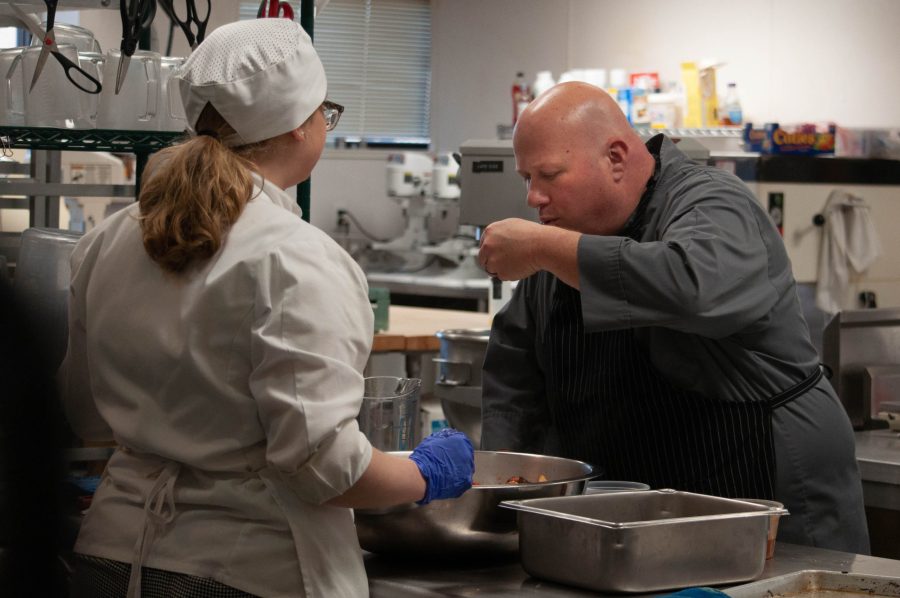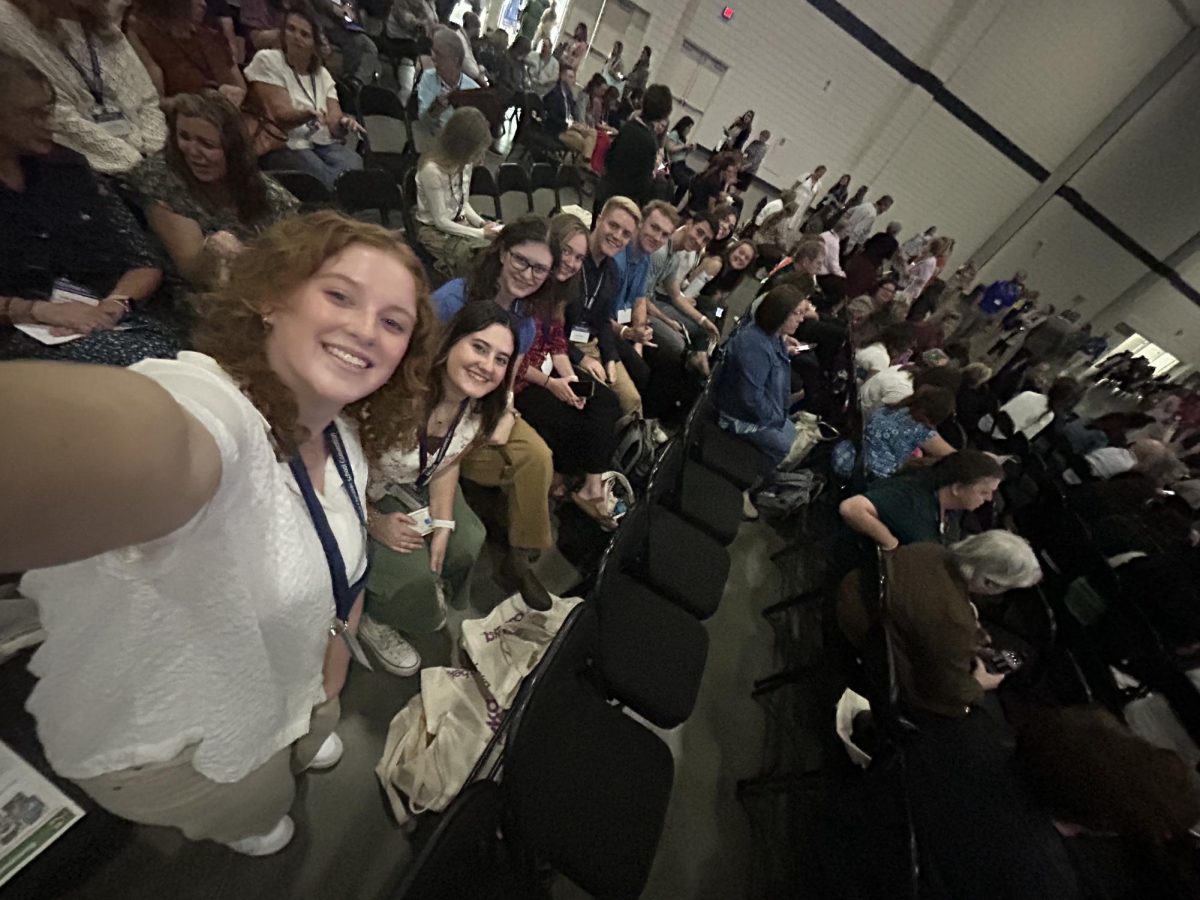The culinary arts department’s Chef Dinner Series brings in guest chefs from around the South to prepare banquet-style fine dining at Bob Jones University. The series started last Friday and will continue on Fridays throughout the semester.
The Chef Dinner Series allows BJU culinary students to learn how to prepare and serve the various guest chefs’ specially designed menus. Throughout the dinner, the chef introduces and describes each course of the meal.
Robert Hansen, a member of the culinary faculty who oversees the Chef Dinner Series, said the series provides an experience for visitors beyond just the food provided. “Eating is what you do to stay alive; dining is an experience,” Hansen said.
He said that a fine dining experience like this devotes special attention to every nuance of the meal rather than just eating it. This semester’s series allows culinary students to learn different types of cooking from different guest chefs and to observe their signature styles.
Chefs featured include Rodney Freidank of Table 301 on Feb. 14; Judi McRae of the Swamp Rabbit Café on March 13; Beau Owens of The Lazy Goat on March 19; Russ Moore of Slightly North of Broad in Charleston on April 3; and Greg Teal of The Avenue on April 10.
All the guest chefs are personal friends of Hansen, and Judi McRae from the Swamp Rabbit Café is a BJU culinary arts graduate. Hansen said that each chef creates a menu that reflects his or her style and personality. “When you work with people long enough, you can kind of see their personality in a menu,” Hansen said. “If you have 20 menus in front of you, you can pick out which one somebody wrote because of their writing style, ingredients they like to use, cooking techniques and that kind of stuff,” he said.
In addition to providing a fine dining experience for guests, the Chef Dinner Series also provides a great opportunity for BJU culinary arts students to learn.
Hansen said that BJU’s culinary arts program offers a special kind of intimate preparation for the career field that cannot always be found at larger, more famous culinary schools. “Because we’re small, we have a distinct advantage,” Hansen said. “The students get a very personal interaction that they don’t get at some larger culinary schools.”
Hansen said events like this enable BJU culinary students to prepare food and see how the people they serve react to it. Hansen also said hosting events like this allows students to see food preparation as ministry as well as business.
Reservations can be made through opentable.com or by emailing Robert Hansen at [email protected].



























































